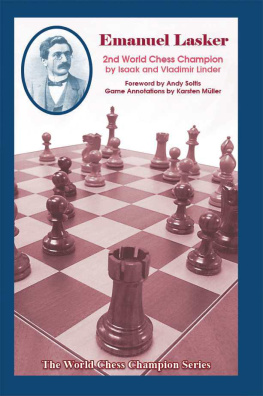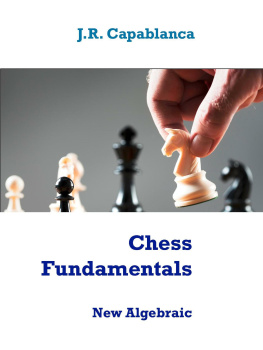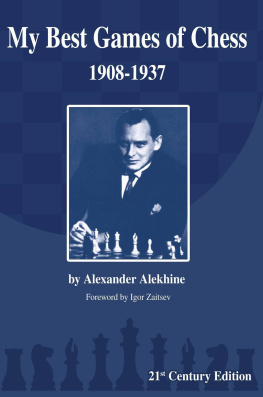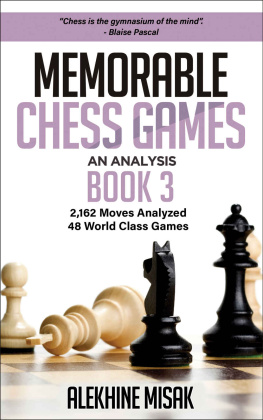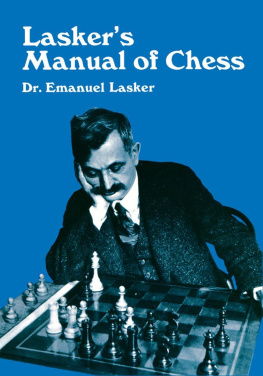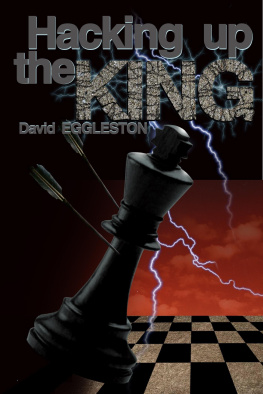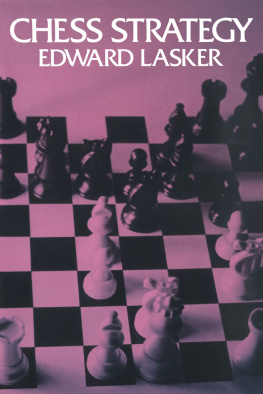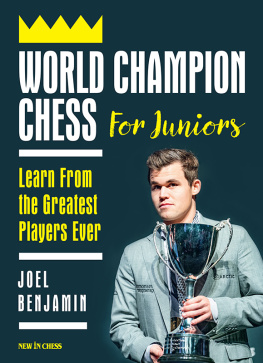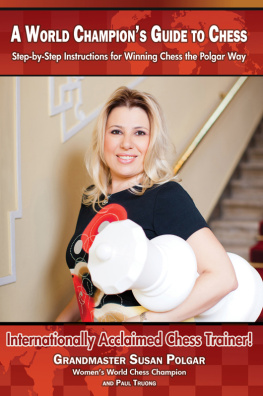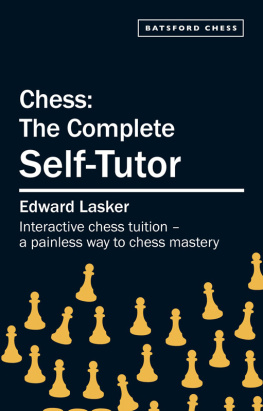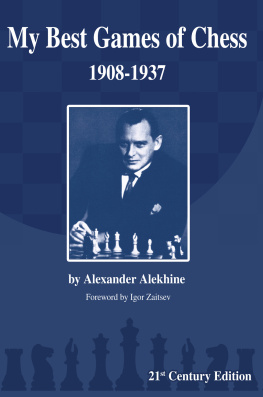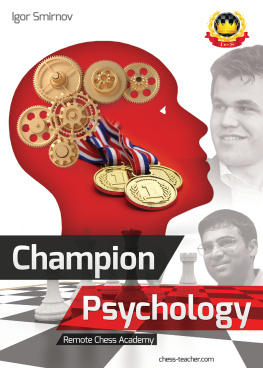Isaak Linder - Emanuel Lasker: Second World Chess Champion
Here you can read online Isaak Linder - Emanuel Lasker: Second World Chess Champion full text of the book (entire story) in english for free. Download pdf and epub, get meaning, cover and reviews about this ebook. year: 2010, publisher: Russell Enterprises Inc, genre: Non-fiction. Description of the work, (preface) as well as reviews are available. Best literature library LitArk.com created for fans of good reading and offers a wide selection of genres:
Romance novel
Science fiction
Adventure
Detective
Science
History
Home and family
Prose
Art
Politics
Computer
Non-fiction
Religion
Business
Children
Humor
Choose a favorite category and find really read worthwhile books. Enjoy immersion in the world of imagination, feel the emotions of the characters or learn something new for yourself, make an fascinating discovery.
- Book:Emanuel Lasker: Second World Chess Champion
- Author:
- Publisher:Russell Enterprises Inc
- Genre:
- Year:2010
- Rating:5 / 5
- Favourites:Add to favourites
- Your mark:
- 100
- 1
- 2
- 3
- 4
- 5
Emanuel Lasker: Second World Chess Champion: summary, description and annotation
We offer to read an annotation, description, summary or preface (depends on what the author of the book "Emanuel Lasker: Second World Chess Champion" wrote himself). If you haven't found the necessary information about the book — write in the comments, we will try to find it.
Emanuel Lasker: Second World Chess Champion — read online for free the complete book (whole text) full work
Below is the text of the book, divided by pages. System saving the place of the last page read, allows you to conveniently read the book "Emanuel Lasker: Second World Chess Champion" online for free, without having to search again every time where you left off. Put a bookmark, and you can go to the page where you finished reading at any time.
Font size:
Interval:
Bookmark:
by
Isaak and Vladimir Linder
Foreword by Andy Soltis
Game Annotations by Karsten Mller

2010
Russell Enterprises, Inc.
Milford, CT USA
Emanuel Lasker
Second World Chess Champion
by Isaak and Vladimir Linder
Copyright 2010
Isaak Linder and Vladimir Linder
Russell Enterprises, Inc.
All Rights Reserved. No part of this book may be used, reproduced, stored in a retrieval system or transmitted in any manner or form whatsoever or by any means, electronic, electrostatic, magnetic tape, photocopying, recording or otherwise, without the express written permission from the publisher except in the case of brief quotations embodied in critical articles or reviews.
ISBN: 978-1-888690-60-6
Published by:
Russell Enterprises, Inc.
PO Box 5460
Milford, CT 06460 USA
http://www.russell-enterprises.com
Translated from Russian by Jim Marfia
Editing and Proofreading by David Kaufmann, Hanon Russell
Cover design by Janel Lowrance
Printed in the United States of America

1-0 White wins
0-1 Black wins
- Draw agreed
+ check
# mate
! a strong move
!! a brilliant/unobvious move
? a weak move, an error
?? a grave error
!? a move worth consideration
= an equal position
+= White stands slightly better
White has a clear advantage
+ White has a winning position
=+ Black stands slightly better
 Black has a clear advantage
Black has a clear advantage
+ Black has a winning position
(D) see the next diagram
When he began his My Great Predecessor s series in 2003, Garry Kasparov adopted a literary device: After telling the story of a world champion, Kasparov quoted what the champions successors had to say about him. Kasparov said he did this because it has become customary.
Perhaps so. But it became customary only after it was used in Kings of the Chess World (2001) by Dr. Isaak Linder and Vladimir Linder. This book is arguably the finest work of chess history in more than 30 years. One of the Kings chapters has been improved and transformed into the book you are reading.
You may not be familiar with the authors because the Linders, father and son, have been published mainly in Russian and German, and only a fraction of their vast contribution to chess literature has been translated into English. Other chess historians know them for their meticulous approach to the craft. They know Isaak Linder in particular for his personal ties to some of the great figures hes written about. For example, during the memorial service for Vasily Smyslov at the Central Chess Club in Moscow in early 2010 he recalled playing Smyslov in Soviet junior events back in the 1930s. A photo survives of Dr. Linder playing Emanuel Lasker in a 1935 simul in Moscow. And he is probably the only historian to appear in a chess movie. In 1986 he was a consultant on the Cuban-Soviet movie Capablanca . When the films director needed someone to play the role of one of Capas frequent opponents, Rudolf Spielmann, he chose Dr. Linder for the part. I remember seeing a still photo of him from the film when my wife Marcy and I were warmly welcomed as guests at the Linders home in Moscow several years ago.
It should not be surprising that the life of Emanuel Lasker gets such a fine treatment from two native Russian-speakers. Many details of the second world champions life appear here for the first time, particularly relating to his play in six great international tournaments and a world championship match in Russia, and his two years residence in Moscow (1935-37). But Russia was only one of the many way-stations that Lasker called home on his career path. He lived for long stretches in Germany, England, and America. He even represented the United States at St. Petersburg 1909 and played under the Soviet sickle-and-hammer flag at Nottingham 1936. Lasker was welcomed all over the chess world, despite the Fischer-like fees he demanded, in an era when many other masters played for chump change. Thanks to his travels and wide-ranging interests, Lasker became an excellent linguist. He wrote some of his finest works in English and, as the Linders point out, knew enough Russian to give a short talk in 1936 about the studies of A.A. Troitsky.
Sorting out the facts of Laskers life is a lot more complicated than it may seem. For example, theres no doubt that he played two full-scale matches with David Janowsky. But what were the conditions of those matches? Several sources claim that both were world championship contests. No, the Linders point out, only the 1910 match was for the title. And of course there is the mysterious 1910 match with Carl Schlecter. The Lasker-Schlechter contract has never been found and, in light of the way the two players conducted themselves in the final, dramatic game, there has been an unending debate about exactly what was in the minds of the two players. The Linders account provides rich detail and draws conclusions: They cite evidence that there was no two-point clause, the much-rumored-about contract provision that would have required Schlechter to win the final game in order to secure the title. The Linders also endorse Louis Blairs secret clause theory that in the event of losing the match, Lasker was entitled to a quick rematch.
This book overthrows a widely held view concerning Lasker and the opening: He is often recalled as an anti-theoretician who cared nothing about the first 10 moves of a game and just followed the simplistic guidelines that he outlined in Common Sense in Chess . According to this myth, Lasker was about a 2800 player in the middlegame and endgame but only about an 1800 player in the opening. This is nonsense. No one so backward in one aspect of chess could have competed so well against super-booked-up opponents like Alexander Alekhine, let alone remain one of the worlds top five players for more than 30 years.
In truth, Lasker was an openings pioneer, as the Linders show. We take for granted basic moves such as 6. Bd2! in the MacCutcheon Variation of the French Defense, yet it was Lasker who showed its strength. The same goes for the Center Counter Defense with 6. h3!, the Froms Gambit with 4...g5 and numerous other lines that have never been given the name they deserve, the Lasker Variation.
Laskers creativity in chess went beyond the games he played. His literary accomplishments, including a considerable output as a newspaper columnist and magazine writer and editor, rival that of any world champion. I suspect many readers have never heard of his book on the 1934 Alekhine-Bogoljubow world championship match, for example. (I didnt until I got my copy of Kings of the Chess World .) In addition, this book provides evidence that Laskers creativity in compositions exceeds that of any of his great successors. The White to play and win study, with just a king, rook and one pawn apiece that he composed in 1890 at age 21, is perhaps the finest composition ever from a world champion. If that were his only contribution to chess and he had not given us the Lasker-Bauer brilliancy or had not beaten Capablanca in the Exchange Lopez at St. Petersburg or had not written Common Sense in Chess , etc. he would still be remembered today. This book will also be revelatory to most readers when it comes to Laskers non-chess interests, such as his books, like Popular Board Games (1931), his invention of the strategy game Laska and his devotion to contract bridge at a time when that game was just beginning.
Font size:
Interval:
Bookmark:
Similar books «Emanuel Lasker: Second World Chess Champion»
Look at similar books to Emanuel Lasker: Second World Chess Champion. We have selected literature similar in name and meaning in the hope of providing readers with more options to find new, interesting, not yet read works.
Discussion, reviews of the book Emanuel Lasker: Second World Chess Champion and just readers' own opinions. Leave your comments, write what you think about the work, its meaning or the main characters. Specify what exactly you liked and what you didn't like, and why you think so.

